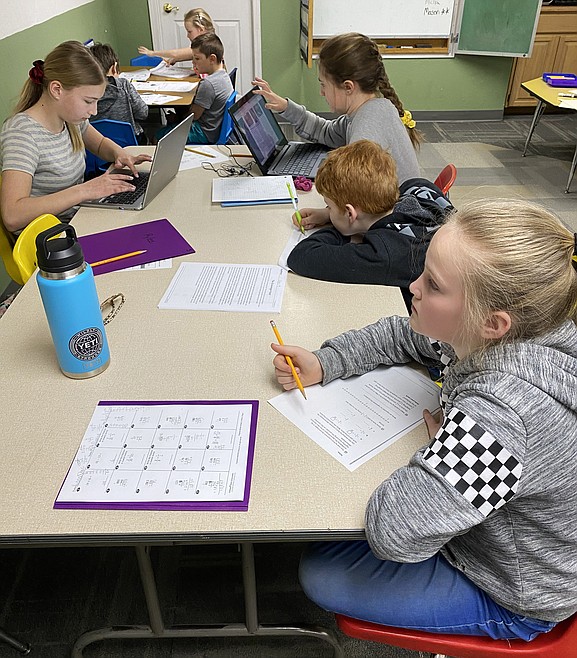Cd’A COVID-19 Relief Fund releases grant recipients
Kids, child care big priorities for local relief
Empty grocery store shelves and an overwhelming sense of collective panic are enough to induce nightmares in anyone.
"One of the young grandsons of a grandmother member got very traumatized by going to a grocery store at the beginning of this pandemic, by seeing empty food shelves and Grandma not being able to find the essentials they needed," said Glenda Weaver, executive director of Relatives as Parents, Inc. "You see, he came from a background of being hungry. After this shopping experience he was so traumatized he started having nightmares about starving."
Relatives as Parents is an all-volunteer nonprofit that serves families as they navigate raising the children of family members. With locations in Coeur d'Alene and southern Idaho, Relatives as Parents serves up to 100 families at any given time.
"There's probably twice as many out there because a lot are afraid to come forward," Weaver said Tuesday.
This nonprofit was among the first to receive support from the Coeur d'Alene COVID-19 Relief Fund, an organization of United Way of North Idaho and several local entities that immediately began working together to counter the effect of the pandemic on the local community.
The fund provided a $1,000 grant to Relatives as Parents to support its families as they juggle housing, feeding and teaching children while many times living on limited incomes.
"These people have been so grateful,” Weaver said. “Literally in tears."
The Coeur d'Alene COVID-19 Relief Fund, which formed just before Gov. Brad Little issued a statewide stay-home order in March, has raised $50,000 to support the hospitality/service industry, vulnerable seniors, pre-K children and child care providers and K-12 youth. The funds are provided to organizations through a grant application process.
More than $20,500 has been used to support local causes and child care centers, including River City Rascals in Post Falls, which serves kids ages 2 to 12. The remaining funds and donations that continue to come in are being distributed on a weekly basis.
A $2,000 grant helped River City Rascals hire a teacher who had been working as a substitute and waiting for a full-time teaching position.
"It definitely helped out a lot," said Cody Rice, who runs River City Rascals with wife Ashley.
UWNI community impact director Keri Stark said the guiding principles in building the fund included a quick turnaround for emergency money and a focus on providing funding for child care programs.
"Out of the five northern counties, more than half of the licensed child care providers closed within the first two weeks (of the pandemic)," Stark said.
UWNI executive director Mark Tucker said early education and child care centers went into the pandemic as an industry and profession that "was not really taken very seriously," he said. "And I think they’re going to come out of it taking a bigger hit, and still not looked at as well as they should be."
"Our work has been so focused on assistance for child care, whether it’s through scholarships for the families or funding to the centers themselves," he said. "We really feel like that’s an important piece of our community, through this COVID situation as well as the future.”
Sam Tuskan, who is on the fund committee and leads the Child Care Resource Center at Panhandle Health District, said keeping child care centers open and providing support during the pandemic and beyond has been essential for society to function.
"Child care is an area where they don't make a lot of money in the first place, so it was crucial to make sure those needs were met when enrollment went down and costs went up," she said.
The Coeur d'Alene COVID-19 Relief Fund includes the city of Coeur d’Alene, Coeur d’Alene Chamber of Commerce, Panhandle Health District, CDAIDE, St. Vincent de Paul, Coeur d'Alene School District and Orchard Ridge Senior Living. It will continue to provide grants as it begins to look ahead.
"We're kind of in the transition phase where we’re not ready to let go of relief funding, but we have an eye on recovery," Tucker said.

